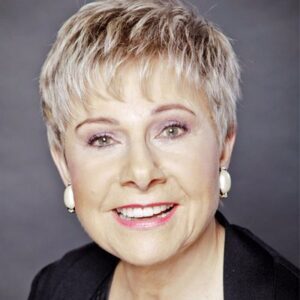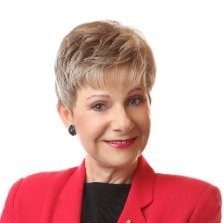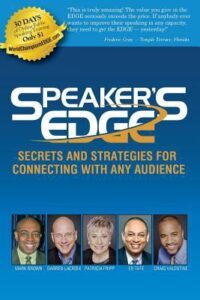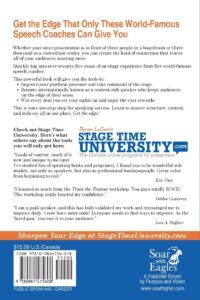Whenever you open your mouth, whether you're talking to one person or a thousand, you usually want to get a specific message across. How do you do that best when you are communicating through a webinar? What's different when the lecture is in the virtual world? How do you catch and keep your audience? Here are 15 tips.
In the Beginning
1. Use looping slides. Once your audience tunes in, how do you make sure they are entertained and feel involved even before the talk starts? The best way is with a series of looping slides.
Using looping slides is a great way to convey important information and keep attendees entertained while they're waiting for your presentation to begin.
These slides should communicate:
- when the session will begin
- the conference dial-in number
- your photo, name, and title
- what the audience is going to learn
- what to do in case of problems.
You might also have quotes about the content they will be learning.
2. Think Hollywood! Be creative in your use of visual appeal. Just as you would in a live presentation, tell stories and give specific examples-but in a webinar you'll need even more visuals to engage the audience.
Use more slides than you would in a face-to-face presentation. An easy way to do this is to reveal bullet points one at a time as you bring them up, rather than all at once before you discuss them. Using mostly visuals and little text (see the image) is even better. Keep it simple, keep it moving, and interact often.
3. Plan your structure. Outline your presentation on paper or a flip chart before you build the PowerPoint presentation. Don't be afraid to get messy before you get tidy. It's better to have fewer points and illustrate them well.
Be sure to
- introduce your objective
- sell the benefits
- explain the agenda and timing of your session (when will you allow for Q&A?)
- add any logistics, such as how the audience will interact with you.
Knock 'em Dead
4. Open with a grabber slide. Open with a grabber slide, a visual that will grab your audience's attention.
5. Use a hook. After the grabber slide, it's up to you to engage the audience immediately with a powerful and relevant hook that includes the word "you." Your hook might be:
A catchy fact: "It may interest you to know Ferraris hold their value more than polo ponies! I first learned this lesson when…"
A startling statistic: "Did you know that if you had spent a million dollars a day, every day, since Jesus was born, you would not have spent a trillion dollars. Please keep that in mind as we strategize how to increase sales by only 5 percent."
An intriguing challenge: "Ten years ago we were the market leaders. This year we are 13th. You are now in an exciting position to turn that around."
Strong openings grab your audience's attention—then, it's up to you to keep it. It's less effective to start with, "Good morning," than, "Welcome! You are in for a treat! You are about to learn…"
As you introduce the session, sell the listeners on how they're going to benefit. Keep them glued. Remember, they can't see you, so it's all too easy for them to answer their email or get a cup of coffee.
6. Introduce yourself second. Only once you've sold the session can introduce yourself (unless someone else will be introducing you). Do not introduce yourself first. You'll need to say something the listeners care about before they will care who you are.
Forge An Emotional Connection
7. Use a high I:you ratio. The most powerful communication combines both intellectual and emotional connections. Intellectual means appealing to educated self-interest with data and reasoned arguments. Emotion comes from engaging the listeners' imaginations, involving them in your illustrative stories by frequent use of the word "you," and answering the unspoken question, "What's in this for me?"
Use a high I:you ratio. For example, don't say, "I'm going to talk to you about webinars." Instead say, "In the next 56 minutes, you will learn: the six secrets of making a webinar work; the four benefits of using webinars as part of your client interaction; and the three mistakes our competitors are making when they use them."
8. Build in interaction. Depending on the technology you use and the format of your talk, make sure you interact with the audience when it's most logical. A simple method is to find that logical place and time, then stop and ask, "Based on what you have heard so far, what are your questions?"
9. Use memorable stories. People rarely remember your exact words. Instead, they remember the mental images that your words inspire. Support your key points with vivid, relevant stories. Help them "make the movie" in their heads by using memorable characters, exciting situations, dialogue, and humor. With a combination of your examples and visuals, it will be a memorable presentation.
10. Use effective pauses. Good music and good communication both contain changes of pace, pauses, and full rests. Pauses mark the time when your listeners think about what they have just heard. If you rush on at full speed to cram in as much information as possible, chances are you've left your listeners back at the station.
It's okay to talk quickly, but whenever you say something profound or proactive, or ask a rhetorical question, pause.
11. Avoid filler words. "Hmm, ah, er, you know what I mean?" In a webinar, filler words sound even more prominent than in person. Are you using them? Why not have a run-through and record yourself? As Michael Caine has said, "Rehearsal is the work, performance is the relaxation."
Before Closing
12. Review, and assume there are questions. As with an in-person presentation, always review your key ideas with the webinar audience before concluding. Then ask, "Before my closing remarks, what questions do you have?"
13. Tell them what to do next. Additionally, emphasize what the audience should do once the webinar is over. Be clear what their next logical steps should be. Send them off energized, focused, and ready to do something.
14. End on a high note. Your last words will linger. Make sure they are your own. Don't quote anyone else-and make sure they are powerful.
Prepare for Hardware and Software Mishaps
15. Have backup computers. Always have two computers tuned into the webinar. My associate Tom Drews, who is very experienced at hosting webinars recommended this technique to Jim Prost and me, and just in time, too.
During a recent webinar, right as Jim took the lead, his computer froze. I was able to jump in and delivered my portion of the talk earlier than planned, which bought Jim enough time to get his second laptop to the place where the first had frozen. He had it keyed up and ready to go, so it only took a few moments to synch himself back up. With technology, you never know!
(This blog post is adapted with permission from an article first published in eLearn magazine: http://elearnmag.org/subpage.cfm?section=best_practices&article=56-1)
As an executive speech coach and sales presentation skills trainer I coach my clients to improve both their sales and the quality of their meetings through effective presentation skills. Fripp Associates are experts in business communication and their services include teaching clients how to be more effective with online meetings.
Read More...
 September 3 was the 70th anniversary of when England went to war. That was the day Uncle spoke for 45 minutes to the Wimborne Rotary Club. My dad was a founding member in 1950 and President in 1967-8. Everyone was very interested and impressed with his delivery. Can you believe at the end of the war they were paid their entire salary minus 50% income tax!!! That is a higher tax rate than if they had earned it. At that time there was no talk of post traumatic stress and 6 weeks later he had his next posting.
September 3 was the 70th anniversary of when England went to war. That was the day Uncle spoke for 45 minutes to the Wimborne Rotary Club. My dad was a founding member in 1950 and President in 1967-8. Everyone was very interested and impressed with his delivery. Can you believe at the end of the war they were paid their entire salary minus 50% income tax!!! That is a higher tax rate than if they had earned it. At that time there was no talk of post traumatic stress and 6 weeks later he had his next posting. A keynote speech on presentation skills is perfect for your conference if your audience needs to learn the very latest public speaking techniques. If business presentations, sales presentations, corporate convention speeches, executive speeches, internal meetings and company briefing are of a high priority to you there is no better keynote speaker to hire than Patricia Fripp.
A keynote speech on presentation skills is perfect for your conference if your audience needs to learn the very latest public speaking techniques. If business presentations, sales presentations, corporate convention speeches, executive speeches, internal meetings and company briefing are of a high priority to you there is no better keynote speaker to hire than Patricia Fripp. 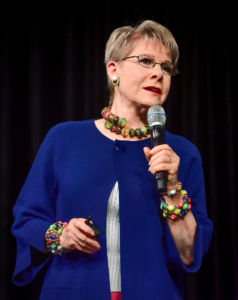 The higher up the corporate ladder an individual goes the more important good public speaking skills become.
The higher up the corporate ladder an individual goes the more important good public speaking skills become. 